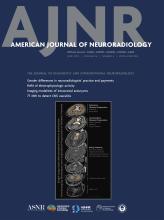Case of the Week
Section Editors: Matylda Machnowska1 and Anvita Pauranik2
1University of Toronto, Toronto, Ontario, Canada
2BC Children's Hospital, University of British Columbia, Vancouver, British Columbia, Canada
Sign up to receive an email alert when a new Case of the Week is posted.
August 3, 2017
Epidural Rosai-Dorfman Disease (RDD)
- Background:
- Rosai-Dorfman disease (RDD) is a rare histiocytic, proliferative disorder of unknown etiology characterized by painless bilateral cervical lymphadenopathy.
- Extranodal manifestations are uncommon and spinal involvement is rare.
- The common extranodal sites include skin, upper respiratory tract, and bone.
- Clinical Presentation:
- Fever, lymph node enlargement, leukocytosis, neutrophila, elevation of erythrocyte sedimentation rate (ESR), hypergammaglobulinemia, and weight loss
- Key Diagnostic Features:
- The lesion can be intradural or extradural in location; appears low or isointense on T1WI and T2WI and shows intense homogenous enhancement with contrast
- Vertebral bone marrow enhancement is rare.
- Differential Diagnoses:
-
RDD is a rare diagnosis with a wide spectrum of imaging manifestations and therefore requires histologic correlation for diagnosis.
-
Meningioma, lymphoma, metastasis, granulomatous diseases: may have indistinguishable imaging characteristics; the low T2 signal and the cervical lymphadenopathies that may be seen on spinal axial MRI may point to the correct diagnosis.
-
- Treatment:
- Has good prognosis
- Self-limiting in about 70% of cases
- Surgical debulking is done to relieve cord compression.











